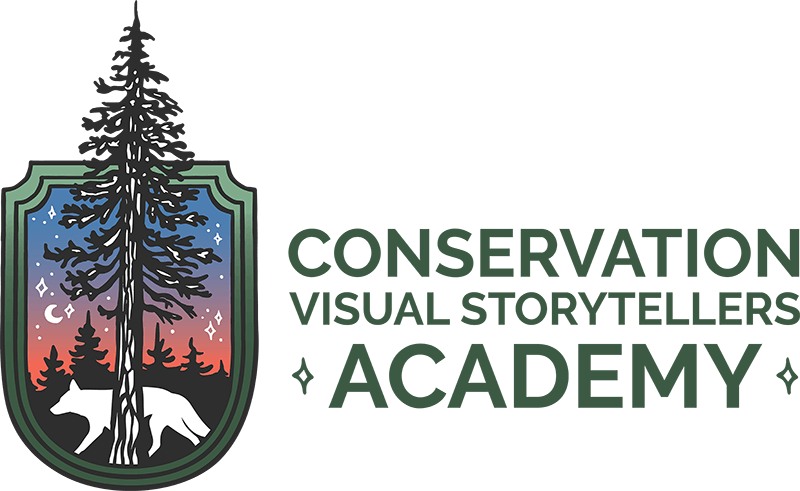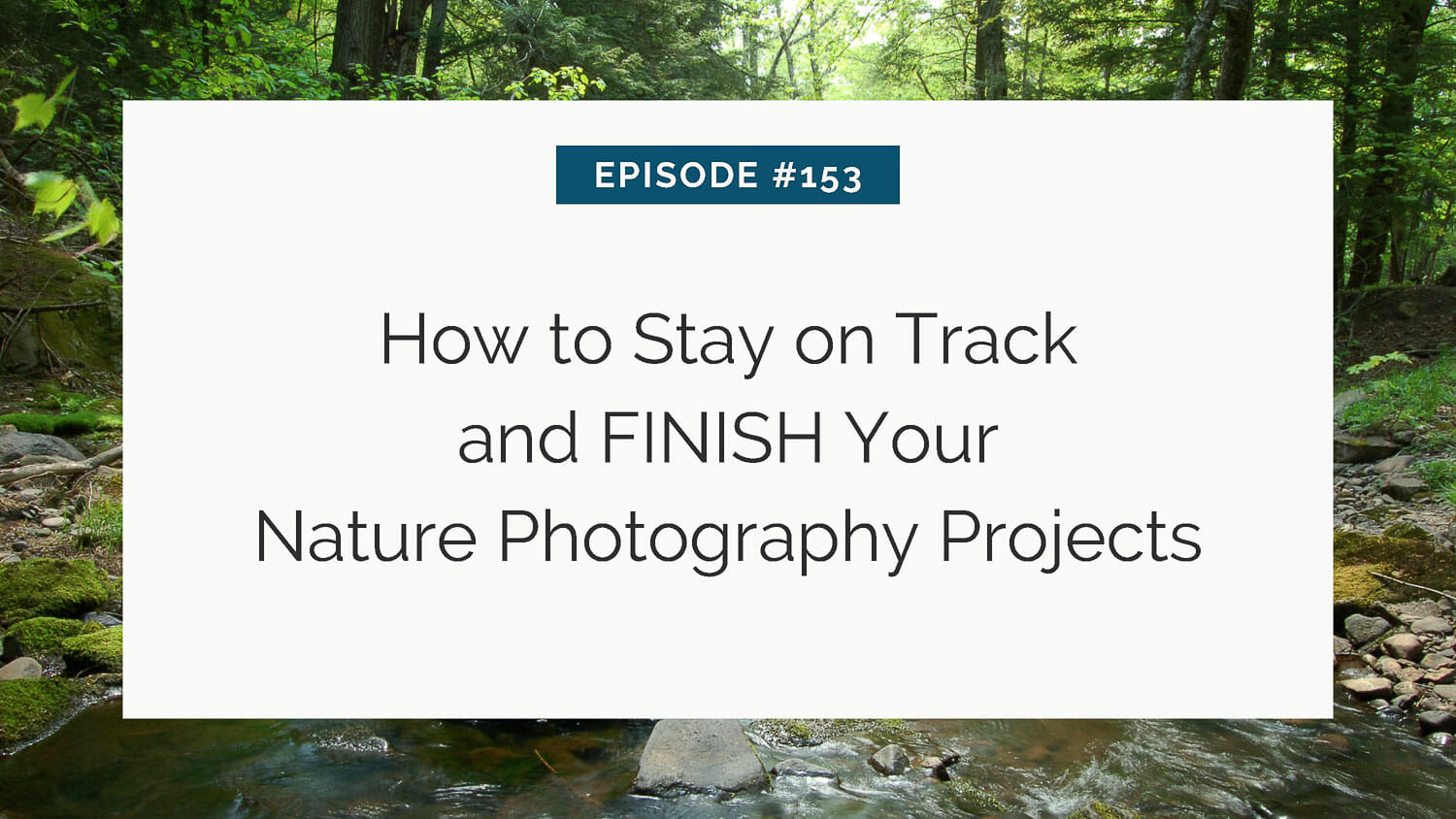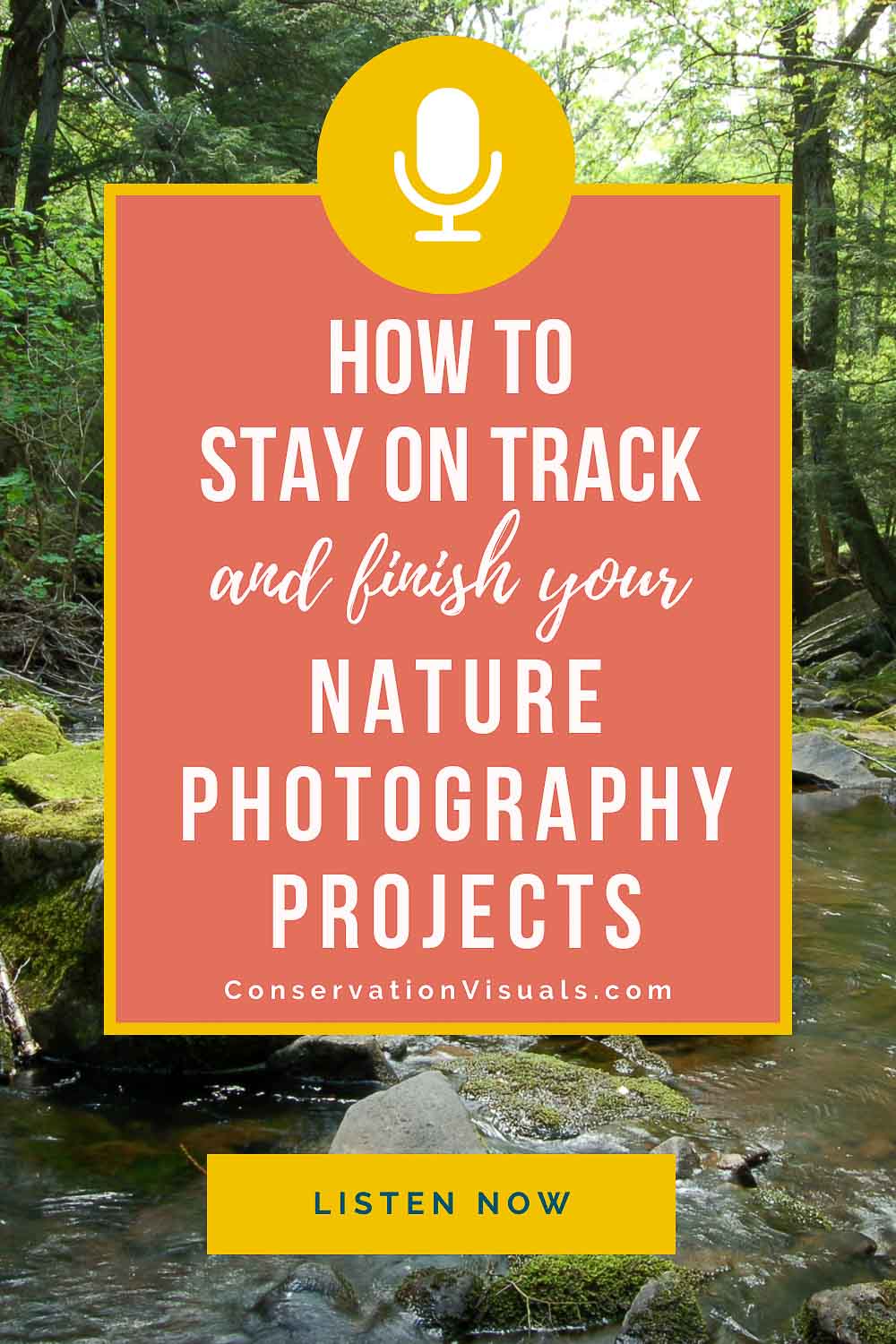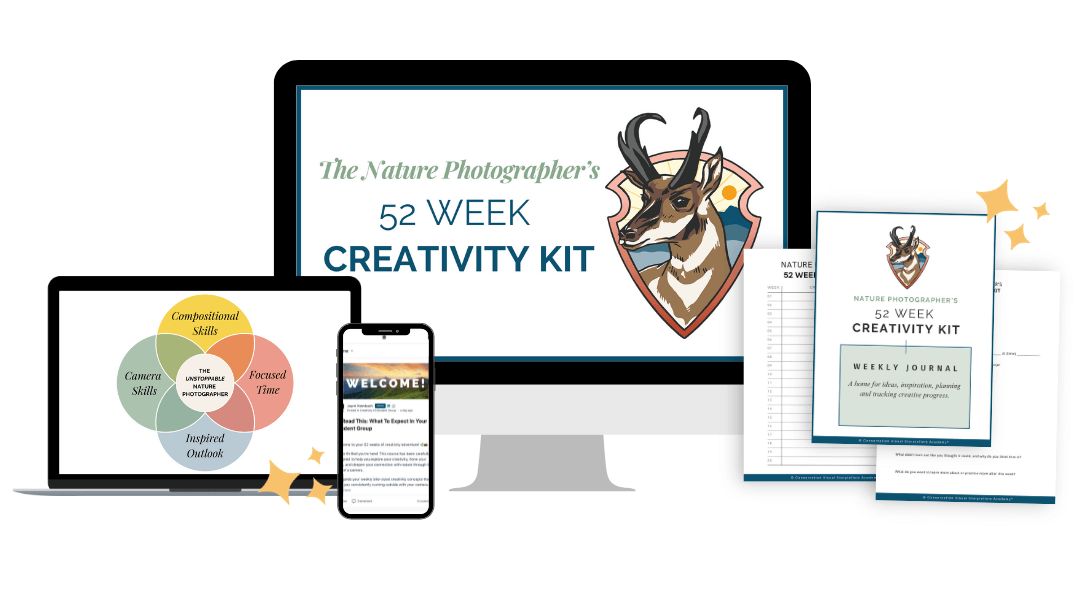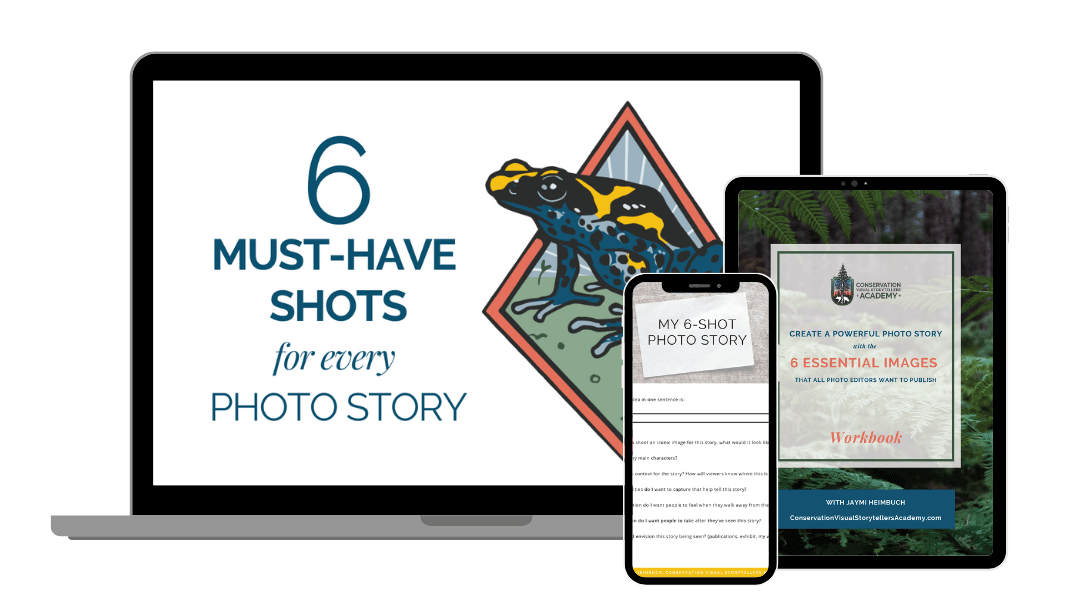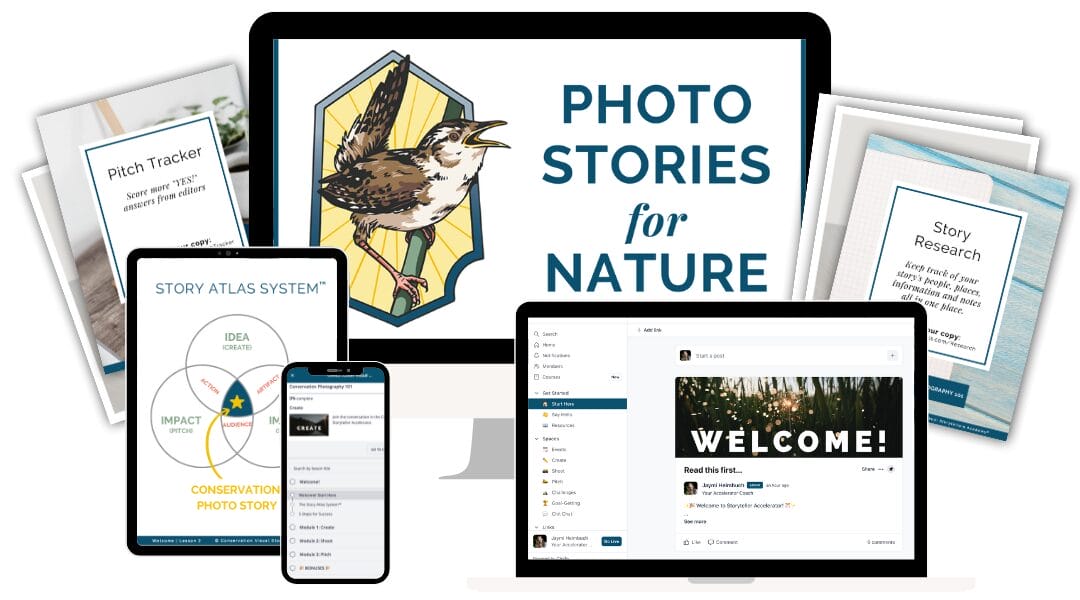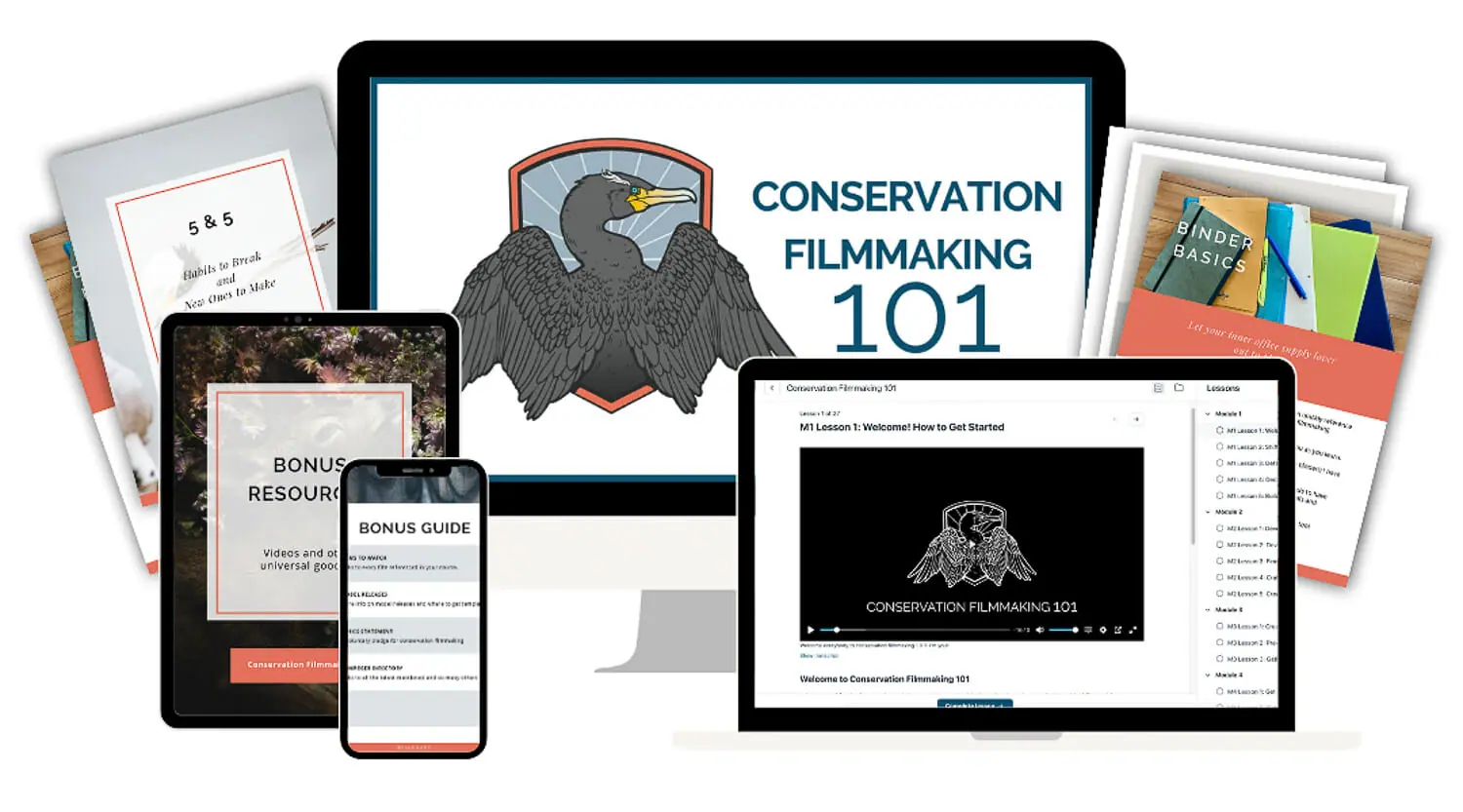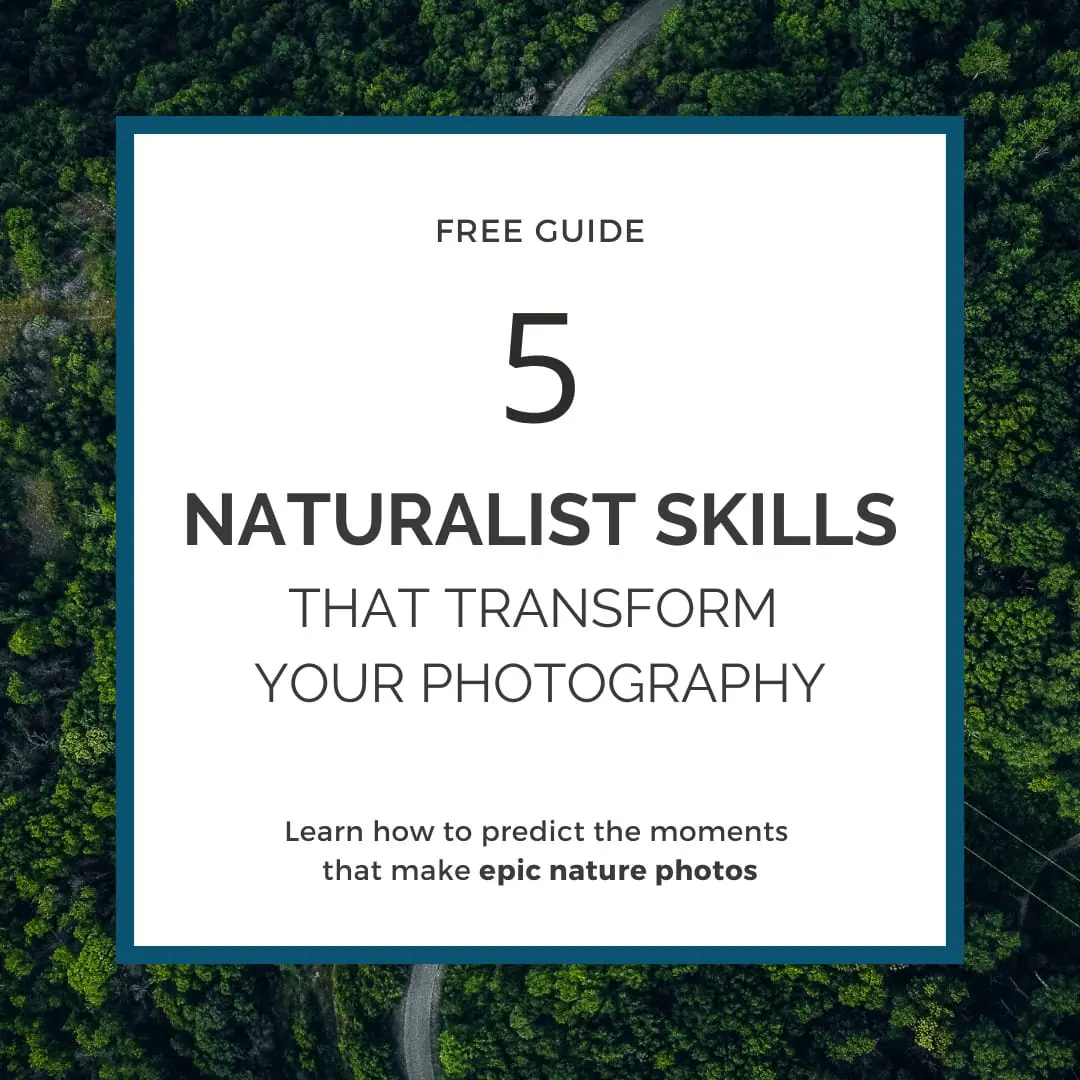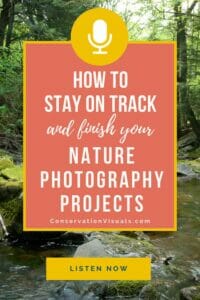3 Essential Strategies for Staying on Track in Any Photo Project
Discover three proven strategies to maintain focus, improve your skills, and bring your photography projects to life, even when faced with creative blocks or dwindling enthusiasm.
A little structure speeds projects to the finish line
As a photography mentor with a deep love of structured creativity, I’ve noticed a common struggle among novices and even experienced photographers—maintaining momentum in the midst of a project can be difficult.
You often start with a wave of excitement and a head full of ideas, but as time pushes on, it's easy to lose focus.
Maybe other commitments take precedence, or maybe you hit an unexpected creative roadblock.
Your initial passion turns into a burden, leaving you with a feeling of wasted time.
But, there's good news!
By incorporating a bit of strategy and structure, you can keep your creative fire burning brightly.
Let's explore three time-tested strategies to keep your photography project moving forward and ensure you stay on course.
1. Define Your Goals
The first strategy focuses on setting distinct, achievable goals. If you venture out with the intention of photographing a rare bird but lack a concrete goal, you might end up wandering aimlessly and miss your subject.
So, start by asking yourself, “What is it exactly that I want to capture?”
Don't settle for a vague objective like shooting landscapes; instead, aim for something specific like “a winter sunrise over the Grand Canyon.”
This will provide you with a tangible, actionable target.
However, make sure your goals are attainable. Set targets that challenge you but are still achievable to keep your focus sharp and productivity high.
2. Your Project is Your Practice
The second strategy is to perceive your project as practice. Similar to learning a musical instrument, you shouldn’t expect instant perfection in photography. Projects demand regular effort and allow room for making and learning from errors.
It's easy to lose steam when a project gets tough, but if you view it as a fun journey toward improvement rather than striving for perfect results, it's far easier to maintain focus.
3. Learn from Your Mistakes
The third strategy is perhaps the most vital—embrace the learning curve. In photography, as in life, mistakes are unavoidable. However, each blunder is a chance to learn something new.
Whenever a shot doesn't turn out as you envisioned, don't beat yourself up. Instead, take a moment to analyze what went wrong and decide on your next steps for trying again.
Think of mistakes not as you messing up, but rather as a learning opportunity for making forward progress faster.
Above all, remember to enjoy the photo project process.
Photography should be a joyful expression of your creativity. It isn’t solely about getting the ‘perfect' shot. It's about the excitement of seeing things from different angles and engaging with the world around you.
Throughout your project, keep your eyes on the prize. Picture yourself achieving your goals, break down your big goals into achievable milestones, and enjoy the process.
These strategies will guide you through the toughest challenges and keep your motivation high.
Resources Mentioned
Episode 153: 3 Essential Strategies for Staying on Track in Any Photo Project
Shownotes: ConservationVisuals.com/153
(Digitally transcribed, please forgive any typos)
Jaymi Heimbuch:
E 153
===
[00:00:00] Jaymi: Hey there, and welcome to this episode of Impact, the Conservation Photography podcast, and today we are diving into an issue that is near and dear to my heart. As someone who loves process and planning as someone who loves. Crafting creative structure as someone who coaches photographers every day in my conservation photography 1 0 1 course and helps them get through creative stall out or that awful sense of overwhelm that can come when you are doing big things in your photography.
[00:00:32] Jaymi: This topic is a very big deal to me and our topic for the day is staying on track in your photo projects. We've all been there, haven't we? You start with this burst of enthusiasm. Your mind is buzzing with ideas. You've got this clear vision of the photos that you wanna capture, but then somewhere along the way, things get a little.
[00:00:53] Jaymi: Fuzzy, like maybe you lose motivation or you get distracted by other projects that pop up. Maybe some big [00:01:00] life thing happens that kind of derails you. Maybe you hit a creative roadblock and you just can't seem to find your way around it. It's frustrating, isn't it? You feel like you're losing precious time and that initial excitement turns into stress.
[00:01:15] Jaymi: But don't worry, because today we're gonna tackle all of this head on and we're gonna discuss. Three foolproof strategies that will help you stay focused and keep that photo project on track. And our first strategy that we're gonna dig into is setting clear goals. Now, I know you might be thinking, Jamie, this is a photography podcast. I wanna talk about creativity. This is not a corporate seminar. What's with the goal setting? But the thing is, There is a significant power to goal setting.
[00:01:44] Jaymi: And in photography, it's really not that much different from any other field. So you need to first ask yourself, what do I want to capture and get specific about it inside this photo project? What do I wanna accomplish? What specifically do I wanna [00:02:00] photograph? Now your project could be about anything from landscapes or photographing a rare animal species or whatever it may be.
[00:02:08] Jaymi: Inside Of any goal, you need to have very clear specific goals because setting really big, broad goals like, oh, hey, I wanna go photograph a rare bird without getting very specific about it, can just lead to that problem of coming home from a wander in the woods. Without that photograph, you wanna be very specific about your goals.
[00:02:26] Jaymi: So instead of just saying, I wanna photograph some landscapes of this interesting imperiled habitat. Instead try something like, I wanna photograph specifically five locations inside this habitat. I wanna photograph it at sunrise and sunset, and I wanna make sure that these elements X, Y, and Z are inside these images.
[00:02:48] Jaymi: These conservation elements are what makes that landscape specific. Do you see the difference the first. Kind of broad goal is, Hey, I wanna create some landscapes about this location, this habitat [00:03:00] that's really unique. And the second one is I wanna make these specific images with these specific elements in them.
[00:03:07] Jaymi: That latter goal is clear. It's actionable. It gives you something concrete to work towards. Now, I know that it might seem daunting at first getting that specific about your goals, especially if you like to stay pretty loose with your creativity. But trust me, the more specific your goal, the better your chances are of achieving it. When you set those very specific goals inside your photography, then you can actually learn a whole lot about what you really do wanna walk away with.
[00:03:35] Jaymi: As you start to work towards those goals, those goals might shift a little bit as you start to work toward them, and then you get even clearer on what you want your project to accomplish. And when you get that clear about what you want your project to accomplish, you can keep your enthusiasm about achieving it.
[00:03:51] Jaymi: Up now remember that goals should also be attainable and realistic. Definitely dream big about the photos that you wanna craft [00:04:00] for your project, and then assess them for how attainable are they, how realistic are they? Maybe if they're gonna be really tough to get, what extra work do you need to put into making sure that you can make them happen?
[00:04:12] Jaymi: When you set those really clear goals and you make sure like, Hey, this is definitely something that I can achieve, it's realistic, it's attainable, then you can really have that forward path. You know exactly where you're headed, and so you can craft that forward path toward that goal. Try to set goals that do push you, but are also still within the realm of possibility because it can happen that sometimes in a project you set such big goals that that is the very thing that throws you off track and makes it harder to actually finish your project. The goals are so big that they're overwhelming, they're daunting, they're scary. You don't even start toward them. Because they're so big.
[00:04:50] Jaymi: So set goals that are still within the realm of possibility. The balance can be a little bit tricky to find sometimes, but when you work at it and you do find that [00:05:00] balance, you're gonna be amazed at how much more focused and productive your photography becomes inside that project. You've thought about what you can achieve.
[00:05:08] Jaymi: You've made it very, very clear what you want to achieve, and you know that it's within reach. And so there you go. Headed off that trail to go get it. How do we go about reaching big, broad, audacious goals though? Because it is really fun to set those and instead of letting them derail you because they feel overwhelming, let's go ahead and talk about how we reach those big, big goals.
[00:05:30] Jaymi: Now, the secret lies in breaking them down into smaller, manageable tasks. So let's say your goal is to photograph the sunrise over the Grand Canyon in winter. You're gonna start by planning the logistics. Look at the best viewpoints for the sunrise at that time of year. Check weather forecast for clear skies.
[00:05:50] Jaymi: Arrange your travel, arrange your accommodation. Brush up on any technical skills that you may need to have to be able to photograph at sunrise. What are the camera settings? Are there any [00:06:00] filters that you might need? Prepare yourself mentally, like waking up early is tough, so you may need to make sure that you set a couple of alarms or maybe practice waking up early for a couple of weeks ahead of time so that you can be out there plen early.
[00:06:13] Jaymi: By breaking down a big goal into smaller, manageable tasks, you're making it so much less overwhelming, and therefore you're increasing your chances of achieving it. So a moment ago, I just said, make sure that your goals are realistic and attainable. You can still have huge audacious goals.
[00:06:32] Jaymi: You can make them realistic and attainable by breaking them down into these manageable tasks. Now one resource that I would love for you to check out is episode 15, how to make a Scope of Work for Your Photography Project and episode 16 on how to create a work breakdown for your photo project. Those two episodes will walk you through even more how you break down a big task, into these smaller, more actionable tasks.
[00:06:59] Jaymi: [00:07:00] So that's the first thing is really thinking about goal setting, and I know that when you are a creative type, setting goals inside your photography can feel like a burden. But like I said, it is so helpful because goals help you know exactly what it is that you wanna achieve and then you can craft that path toward it.
[00:07:19] Jaymi: If you only ever have a vague idea of what you wanna do, you'll always be kind of wandering aimlessly around and stay frustrated. So those goals create a really clear path that then is fun to travel down. moving onto our second strategy for staying on track with the photo project, and that is that you can make consistent forward progress by thinking about the whole photo project as practice. You see photography is sort of like playing an instrument.
[00:07:47] Jaymi: You can't just pick up the guitar for the first time and expect to play like, I don't know, Jimi Hendrix. Right? With a photo project, you're not going to magically get this perfect portfolio, this perfect outcome from it [00:08:00] without continuously working on it, making mistakes, making adjustments as you go.
[00:08:05] Jaymi: It's really easy to let the passion behind a project fade once it starts to get hard. If you're not getting the outcome that you thought, and it feels like it's. This kind of burden. If it just feels like, well, why aren't I magically just getting what I envisioned? I don't know why this feels so hard, then the project can slip to the back burner.
[00:08:24] Jaymi: You're not getting the results that you wanted or a imagine having when you start it out, and so you just start to put it to the side. , If you think of your project as a mechanism for your photography practice, it's like a tool that you're using to practice photography, then it's easier to think of it as a journey rather than an end destination, and the emphasis is on the practice.
[00:08:48] Jaymi: Not that perfect final product, not that thing that you just wanna have in hand already, right? It becomes more about the enjoyment of practicing photography to start to get at that perfect [00:09:00] final product that you've dreamed up by setting goals, right? Now, one way to keep practicing consistently is to set a schedule. So just as you would schedule any meetings or your workout sessions or when you walk the dog, schedule a time each day or each week specifically for your photo project. And it can be as little as 15 minutes a day. Just make sure that it.
[00:09:24] Jaymi: Is at a time when you're free from other distractions. So this is really dedicated time to your photography. You aren't multitasking on anything. You aren't, , distracted by something else that is kind of pulling at your attention. This is dedicated time that not only helps you build the habit. Of regular work on the project, but it also allows you to focus solely on improving your photography skills, and that is momentum that can really build on itself when you're focusing specifically on improving your photography skills and also accomplishing work on the project.
[00:09:57] Jaymi: It just kind of feeds that machine of [00:10:00] forward progress. It becomes really about your photography journey and your project at the same time, and there's. Far less pressure because you know that, hey, this is a short set amount of time. It's a fun practice session. I'm gonna do this thing that I'm gonna focus on.
[00:10:15] Jaymi: It's not gonna be a burden. It's gonna be fun. It's gonna make me some progress on this. And like I said, it's practice. So hey, what can go wrong? You're more likely to show up for that time every day or every week. You're far more likely to. Feel like, Hey, this is a really fun way of moving forward on that goal that I've got set, rather than, oh my God, I really need to work on that project.
[00:10:37] Jaymi: I should have done it last weekend. Now I really have to do it this weekend. Oh my gosh, it feels so big. Am I really in the mood? I don't really know. Instead, you've got your. 15 minutes or half hour, your one hour, whatever it is that you've set, that's a really doable amount of time. And you can say, Hey, this is just this time where I'm gonna chip away at my project, have some fun, get some practice in, and then go on with the rest of my day.
[00:10:59] Jaymi: Another [00:11:00] tip to help you along with maintaining this consistent practice is to consider joining a photography club or a community. These communities often host regular events or challenges that can keep you motivated to practice your photography consistently, and therefore, what better way to practice your photography than with your photo project? So you're already getting encouraged by this group to practice, and you have this project to practice.
[00:11:25] Jaymi: On. Plus, you can share ideas about your photo project with other members, and they may help you stay excited or troubleshoot ideas or even maybe go into the field with you to help you or to help keep you motivated. So not only would you have this platform to share and receive feedback on your work and within your project, but you might also meet these really cool like-minded people who can inspire you and push you to work even harder in your photography.
[00:11:51] Jaymi: Now remember, the end goal with your photo project isn't just to simply reach this. Perfect outcome, but to see improvement over time. So [00:12:00] keep practicing and soon enough you see the results in your work and you get to that end of your photo project, that end result that you dreamed about when you first started that project.
[00:12:10] Jaymi: So remember, even on days when you are super busy, try and squeeze in some camera time. It can be as simple as getting one photo that you hope to make for your project, or even as simple as practicing the skills that it will take to get one photo that you're dreaming of inside your photography project.
[00:12:28] Jaymi: Consistency will keep those skills sharp, keep them growing, and keep those creative juices flowing. So our third and final strategy for staying on track with your photo projects is embracing that learning curve. Now, let's face it, in photography, just like in life, mistakes are inevitable, and every mistake is a lesson in disguise. Learning from mistakes is a really critical part of any creative process, including photography.
[00:12:56] Jaymi: When a photograph doesn't turn out the way that you wanted it, if you [00:13:00] missed a crucial shot, it's not a sign of failure. It's an opportunity for growth. So simply look back and say, okay, well where did I make a misstep? Where did I mess up? Was it a technical error? Did I have the incorrect exposure settings?
[00:13:13] Jaymi: Is it a compositional error? Did I kind of rush and I missed the decisive moment? Or I. Put my My Subjects dead center and frame instead of really thinking about the composition. Reflecting on these questions are gonna help you pinpoint areas for improvement, and then that'll help you prevent similar mistakes in the future.
[00:13:33] Jaymi: But it's really important to embrace that as a fun part of the process, so not as like, oh, I just totally messed that up. But maybe say, oh man, I messed that up, but okay, where did I go wrong? Where do I wanna make that shift? And don't shy away from constructive criticism either.
[00:13:48] Jaymi: That can be from fellow photographers or from a mentor, even from family members. Listen to that feedback. And remember, it's not about you. It's about the image, and you're learning. You're learning about what's [00:14:00] right, what could be improved. Other people's experiences and perspectives can provide this really invaluable insight to improving your craft.
[00:14:07] Jaymi: And when you think about it, like just, Hey, this is part of the learning curve, then you don't beat yourself up so much. Right? Let's dig into that. Let's talk about enjoying the journey. Photography should be an expression of your passion, your curiosity, the way you see the world, your persistence. It's not merely about capturing the perfect shot. It's also about the joy of exploring these new perspectives and engaging in the natural world that's all around you. So if you find yourself getting really frustrated or.
[00:14:40] Jaymi: Anxious about not getting that perfect shot. Then remember to just take a step back and remind yourself why you fell in love with photography in the first place. Whether it was that thrill of capturing that super fleeting moment, or it was the satisfaction of creating this. Beautiful composition, that is everything that you intended it to [00:15:00] be.
[00:15:00] Jaymi: Or it is the joy of playing with light and seeing what it does to shift the way that your frame looks. Let all of these joys fuel that journey and turn the process into this fulfilling experience. To kind of bring it back to where we started, always keep that end goal in mind. There will be times when you're frustrated, when your progress seems slow, when that perfect shot just never seems to happen, no matter how hard you try. And in those moments, remember your specific. Attainable goal that you set at the start.
[00:15:35] Jaymi: Visualization can be a very powerful motivator here. So picturing yourself, nailing that perfect sunrise shot over the Grand Canyon, or capturing that rare bird flight, whatever it is for you, for this project, really envision yourself capturing the images that you wanted to make for it. This mental image of success can serve as kind of like a light at the end of the tunnel.
[00:15:58] Jaymi: It, it motivates you [00:16:00] through those challenges. It helps you embrace the learning curve as part of this joyful journey. It helps you want to maintain a consistent practice because you know you're growing every single time you get out the door with your camera. So remember to embrace that journey.
[00:16:16] Jaymi: Learn from your mistakes, keep moving toward that goal. You definitely have this photo projects are not easy to work on. They're even harder to consistently work on, and they're actually very hard to complete. So if you can manage to move forward through a photo project, you're doing more than most, and if you know what it is that you are working to achieve, you're staying consistent about it and you're enjoying the entire process, you will get to that end goal and your project, you'll stay on track and you'll have a whole lot of fun during that entire journey.
[00:16:52] Jaymi: So the next time your photos come out blurry or your exposure's all over the place, don't beat yourself up. Just look at what went [00:17:00] wrong, learn from it. Apply that knowledge to your next shoot. Assess what your goals are, make sure that you are still on track to meet them. And remember, even the most famous photographers didn't start out taking perfect shots. They experimented, failed, learned, eventually succeeded, and churn out these projects that have us just in awe of what it is that they're creating. That can be you, these three strategies can help you stay on track with that. Photography's a journey, not a destination. So enjoy the process, keep learning, and most importantly, keep on getting out there with your camera. I hope that this was helpful and I cannot wait to talk to you again soon.
